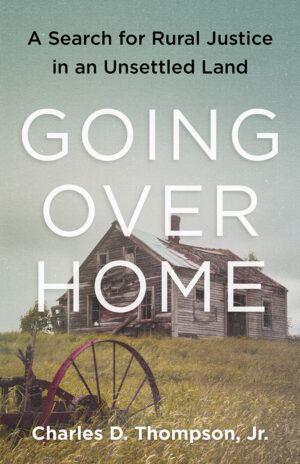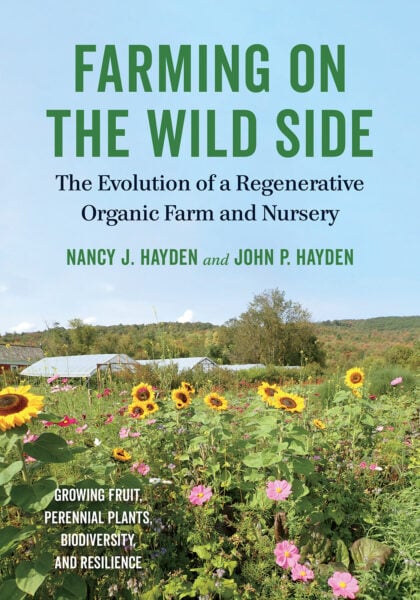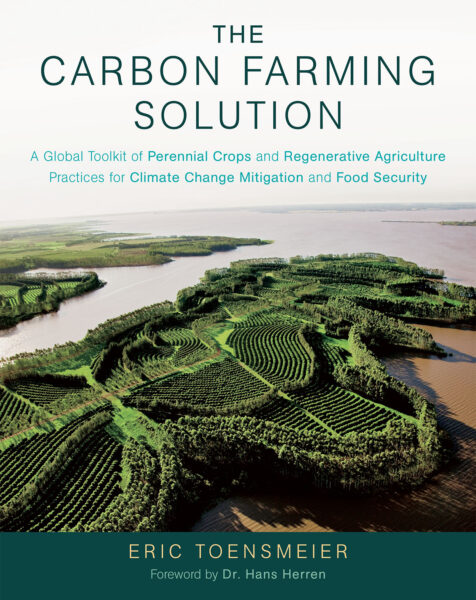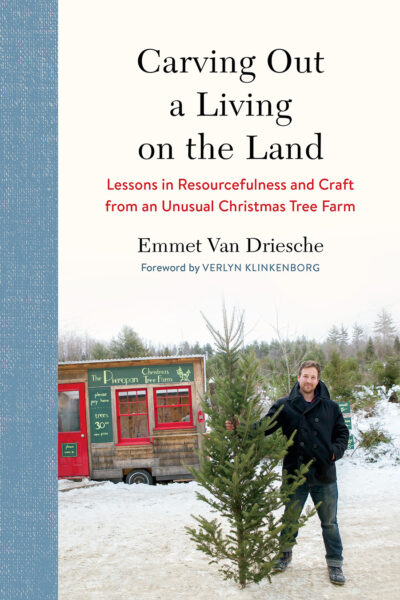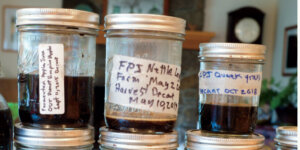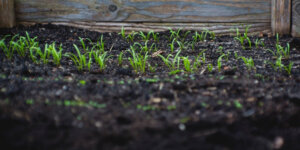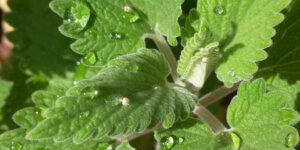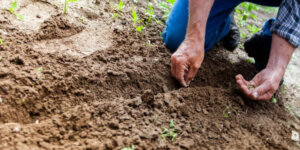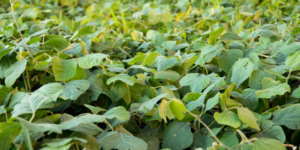A Search for Rural Justice
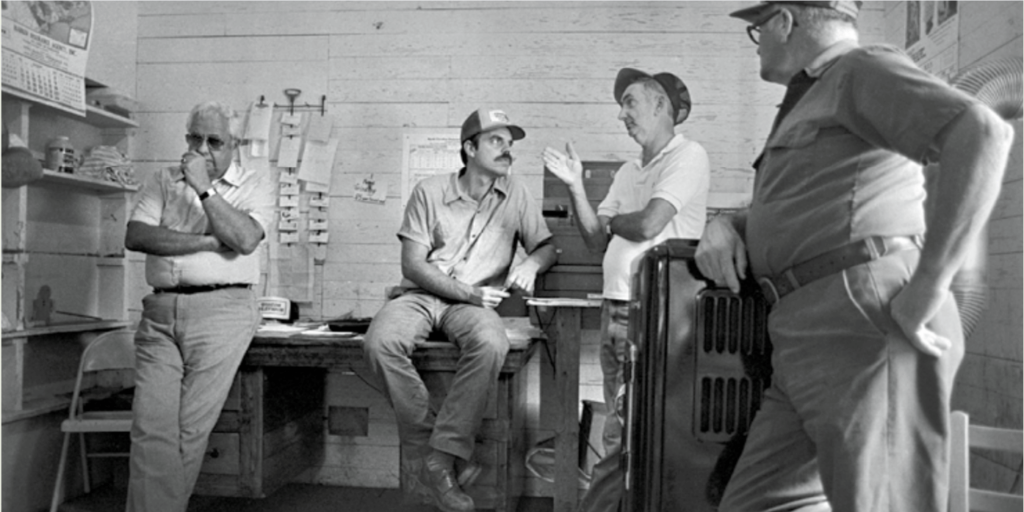
Charles D. Thompson, Jr., is the Professor of the Practice of Cultural Anthropology and Documentary Studies at Duke University. His numerous books and documentaries have helped bring underrepresented rural issues in the United States and Latin America to the forefront. When Chelsea Green sat down with him to discuss his latest book, Going Over Home: A Search for Rural Justice in an Unsettled Land, one interview question turned into a history lesson about the economic and sociopolitical drivers of agricultural insecurity and rural injustice stretching back to the days of Thoreau. Charlie’s book—and his response below—expose a deep history of racism and wealth inequality still felt in rural communities today.
The following is an excerpt from an interview with Charles D Thompson, Jr. from the Winter 2019 Seasonal Journal. It has been adapted for the web.
We founded this country to be governed by “We the People.”
That looked good on paper, but of course we know that Jefferson didn’t really mean everybody. What we’ve had since 1776 is a grand experiment in making a representative democracy work. Today, we hear a lot about “economic democracy.” In the 1930s, that discussion was prominent because we’d just experienced a major Depression. Roosevelt saw this as an opportunity to democratize the economy. The Department of Agriculture came about during that time, as did new efforts to give people access to land—including African American, Native American, and Latino sharecroppers who had never had access to owning part of this country.
The ’30s also saw what we know now as the Agricultural Adjustment Act, which gave subsidies to the largest farmers. Enter agribusiness. By the ’60s, we had huge farms run by machinery and agrochemicals. That’s when Rachel Carson started to say, “Now, wait a minute!” A decade later, Earl Butz was saying, “Get big or get out.”
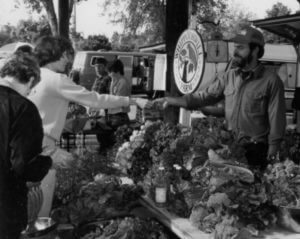
That sparked a movement that resulted in Farm Aid and a huge class action lawsuit on behalf of black farmers in the 1980s. I was the guy who took the hotline call from Tim Pickford who said he was having racism and loan problems. Tim goes on to be the main plaintiff against the Department of Ag, but even after winning the supreme court case, tens of thousands of black farmers who’d lost their land weren’t able to collect on their loans because of systematic racism.
This contradiction of saying we believe in one thing but practice another is the heart of our problem. We haven’t dealt with the original sin of American slavery. We haven’t dealt with the displacement of indigenous peoples. So the exploitation continues. We elect a president that talks about people from across the border being rapists and murderers when we’re using them to harvest our food. We’re living a lie. Thoreau said, “If the injustice is part of the necessary friction of the machine of government, let it go, let it go…but! if it…requires you to be the agent of injustice to another, then I say, break the law.” [Charlie’s emphasis]
Who is “We”, and what is it we must do in order to build democracy? We have to know when it’s our time to listen. We the People of Privilege have to be quiet. How do you get out of the way and not give people voice—they already have voices—but help people have an audience? How do we, as activists, stand in solidarity with people who’ve been suppressed without speaking for them? That’s the big challenge.
Recommended Reads
Recent Articles
Everyone loves a refreshing, fermented, nutritious drink…even your garden! Take your fermentation skills out of the kitchen and into the garden by brewing fermented plant juice. The following is an excerpt from The Regenerative Grower’s Guide to Garden Amendments by Nigel Palmer. It has been adapted for the web. How to Make Fermented Plant Juice Fermented…
Read MoreWant to see your crops thrive this upcoming growing season? The key is in soil fertility and health. Spend time maintaining your soil’s health to guarantee bigger and better crops come harvest time! The following is an excerpt from No-Till Intensive Vegetable Culture by Bryan O’Hara. It has been adapted for the web. What Is Soil Fertility?…
Read MoreMany know the effects of catnip on our feline friends, but few realize that catnip has medicinal effects for humans. From stomach aches to reducing fevers, catnip is a versatile herb with many benefits. The next time you grow this plant for your cat you may end up taking a few cuttings for yourself! The…
Read MoreIt’s time to take control of your seeds and become a plant breeder! Saving your seed allows you to grow and best traditional & regional varieties, and develop more of your own. The following excerpt is from Breed Your Own Vegetable Varieties by Carol Deppe. It has been adapted for the web. Becoming A Plant…
Read MoreTrying to figure out how to manage weeds in your garden beds? Use cover crops and living mulches for weed suppression while your garden flourishes! The following is an excerpt from The Ecological Farm by Helen Atthowe. It has been adapted for the web. Suppressing Weeds With Cover Crops: Getting Started Cover crops suppress weeds…
Read More

